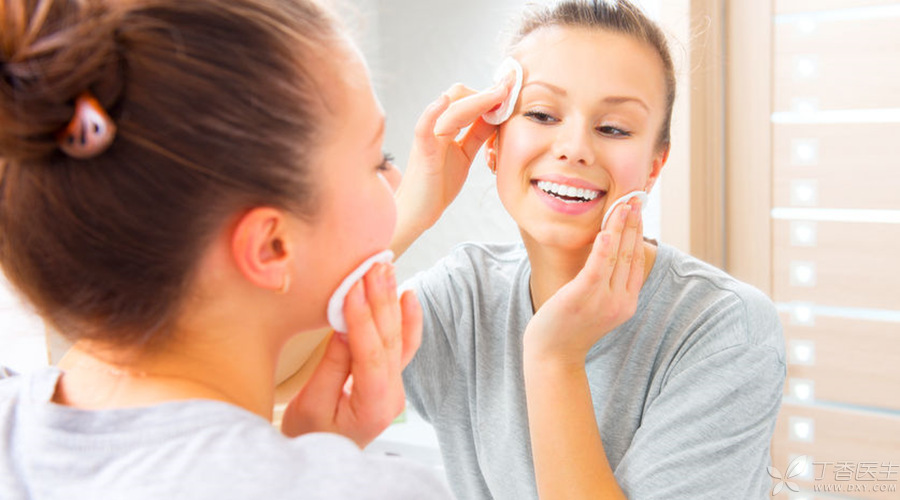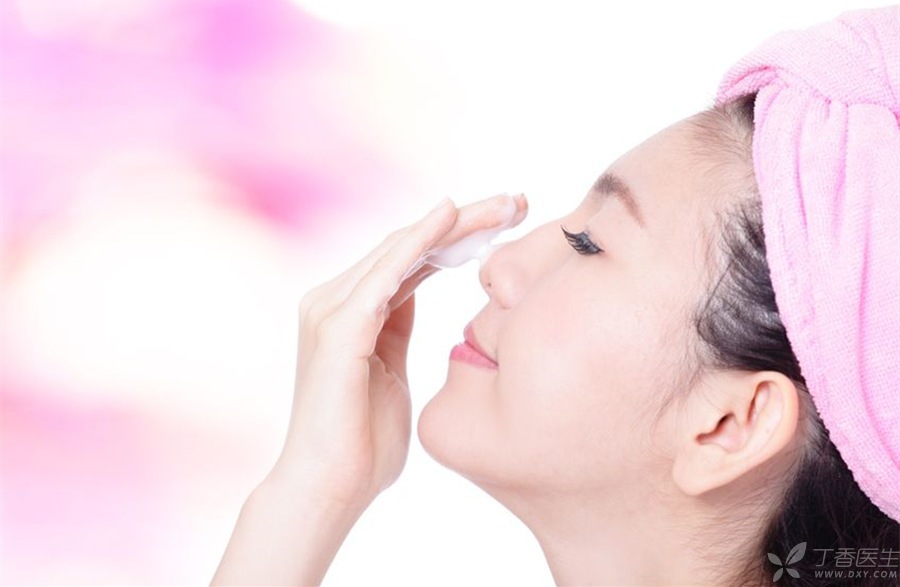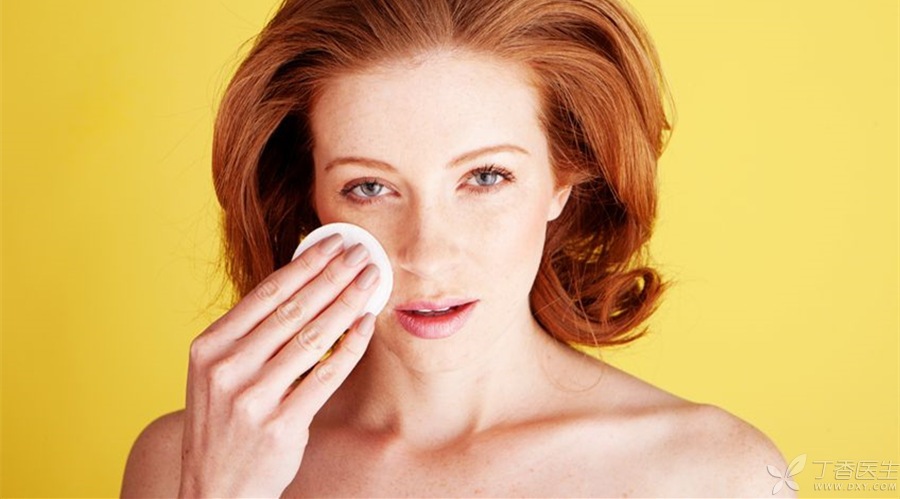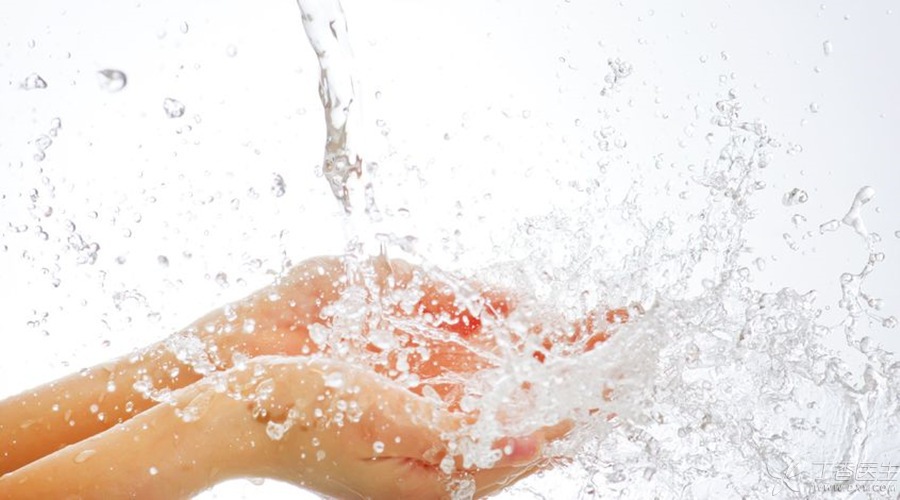
Everyone can wash their faces: from childhood to adulthood, they have been practiced thousands of times. Do you still need to learn?
However, there are many misunderstandings about washing face. Once the method is wrong, it is likely to be washed thousands of times. This will accumulate over time and may cause irreversible damage to the skin of the face.
Today, please ask dermatologists to give you a good talk about those [pits] that are easy to step on when washing your face.
Step 1 Rub your nose with salt and baking soda

Many people are trapped by stubborn blackheads, so they use all kinds of methods to rub out, dig out and squeeze out the things in the nose pores.
However, with these methods of vigorously rubbing and pulling the skin, the effect can only be temporary: the things in the nose come out today and fill up tomorrow, and unconsciously the pores are getting bigger and bigger.
Rubbing your nose with salt and baking soda is a refreshing and regretful practice for a lifetime.
2. Wash your face with milk and rice washing water to whiten your face.
Many people want to whiten their skin and wash their faces with white things, such as milk, rice washing water, coix seed water, etc.
However, you can wash your face white by not washing your face with white things, which is really too underestimating the barrier function of the skin. Because of the natural protective effect of the stratum corneum, these white things cannot be absorbed through the skin, let alone melanin, thus turning you white.
Moreover, this is more likely to cause skin allergy, and it is really not recommended that you try it frequently.
Step 3 Use water that is too hot or too cold

There is such a seemingly reasonable statement:
Wash your face with hot water to expand pores, wash out dirty things, and then wash your face with cold water to retract pores.
But in fact, it is mainly blood vessels, not pores, that enlarge and shrink.
The skin remains ruddy, mainly because of the blood vessels of the facial skin. Overheated or supercooled water will stimulate the expansion or contraction of blood vessels, thus having a strong stimulating effect on the skin.
Step 4 Use scrub too often

The outermost layer of the skin is the stratum corneum, which is also the most important layer of the skin barrier. The skin barrier functions include physical barrier, chemical barrier, immune barrier, etc.
The particles in the scrub cream are natural, such as granulated sugar and konjac particles, as well as synthetic, such as plastic, etc. The difference between these materials is very large. In addition, it is difficult to accurately grasp the strength and time of each scrub, it is easy to grind out invisible small wounds, and the damage to skin is difficult to control.
The suitable people for scrub cream are: thick stratum corneum, no skin sensitivity, bulky pores, oily, etc. The correct usage is: on the basis of normal facial cleaning, gently massage the parts that need to be cleaned.
Not to say that it is not good to use scrub, but if you blindly use scrub, especially if you do not use scrub correctly, you will greatly damage the skin barrier and slowly make the skin thin and sensitive.
At this time, it is even more difficult to repair the skin barrier.
Step 5 Wash too many times a day
Summer loves sweating, and many people like to wash their faces frequently.
However, there is a saturated amount of oil secretion, which will automatically stop when it reaches a certain amount. However, everyone’s setting point will be different. Some people have more oil and some people have less oil.
Therefore, if you consciously produce oil, the skin will default to [too little oil] and need to secrete more oil to reach the setting point, so the more you wash, the more oil you will get.
6. Dry your face after washing

After washing, the face will not be dried. The moisture on the surface will evaporate, which will take away more moisture and the skin surface will be drier. Therefore, air drying is not recommended for the face.
By the same token, some people like to spray spray on their faces to make them feel more comfortable when their skin is sensitive, red, hot, or dry.
After using the spray, you must also wipe the products that replenish water and lock water in time, otherwise the water sprayed on the face will evaporate quickly, which will make the skin drier and drier.
7. Towels are not clean
Some people say, how can towels be dirty? I washed my face before wiping the moisture on my face with a towel.
In fact, towels [unclean] do not only refer to the dust on them. Towels are used for a long time, and there will be various microorganisms on them, such as bacteria, viruses, mycoplasma, etc.
Although there are many normal parasitic microorganisms on the skin surface, there are also many pathogenic microorganisms, so it is necessary to pay attention to the cleaning of towels.
Step 8 Rub your face with a towel

Many people think it is too gentle to wash their faces with their hands, and they wish to rub them with a bath towel.
However, due to the special skin physiological structure, the feminine face cannot withstand such [severe setback]. Local friction will stimulate the skin and lead to skin sensitivity: especially the bony parts such as cheekbones, color spots are especially easy to appear after friction.

Finally, review the correct action of washing face together:
Fully clean the face, it is recommended to wash your face once a day in the morning and evening, and choose cleansing products with different cleansing powers according to your own needs.
Use 1 ~ 2g of facial cleansing products, focusing on both sides of the forehead and nose where the face is prone to oil, gently draw circles with fingers and smear them, and then clean them 10 ~ 20 times with flowing clear water.
After washing your face, dry it with a clean towel in time, and then start moisturizing immediately.
